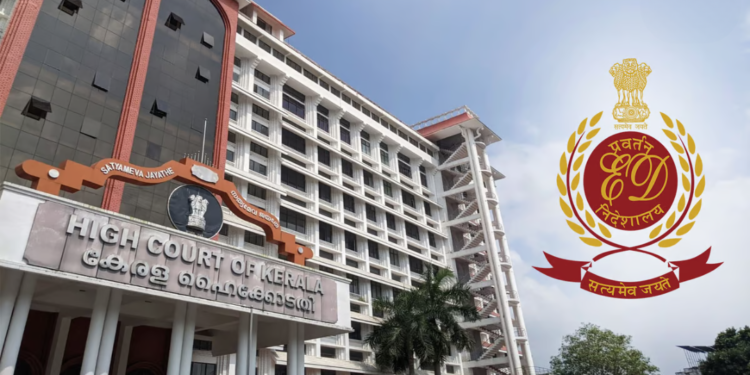The Kerala High Court recently ruled that authorities cannot proceed against properties unconnected to money laundering under Section 5 of the Prevention of Money Laundering Act, 2002 (PMLA). [Satish Motilal Bidri v. Union of India & ors]
Justice Bechu Kurian Thomas observed that the PMLA aims to combat money laundering by targeting the proceeds of crime. It allows for the provisional attachment of properties only if they are derived or obtained directly or indirectly as a result of criminal activity related to a scheduled offence under the PMLA. The law cannot be used to target properties unrelated to the crime.
“The purpose of the PMLA is to eliminate tainted money and initiate proceedings against the proceeds of crime that have been transformed or converted into other property or intermingled with legitimate sources, giving the value of the intermingled gain the colour of proceeds of crime. This provision cannot be used to enable authorities to proceed against properties unconnected with any criminal activity in question,” the Court held.
The Court was hearing a plea by Satish Motilal Bidri, a businessman from Maharashtra, whose bank accounts were frozen by the Enforcement Directorate (ED) in September 2023 following an investigation into a proprietary concern, M/s. Masters Finserv, for alleged money laundering activities.
In May 2022, the ED issued a provisional attachment order under Section 5 (attachment of property involved in money laundering) of the PMLA, provisionally attaching the bank accounts and an immovable property of the petitioner.
Bidri challenged the provisional attachment order, claiming that he had no association with the business of Masters Finserv or its proprietor. His counsel argued that freezing the bank accounts violated Section 17(1) (power of entry, search, and seizure by competent authority) of the PMLA and that the provisional attachment of the immovable property was illegal since the property was acquired in 2004, long before the alleged offences occurred.
The standing counsel for the ED questioned the petition’s maintainability, arguing that Bidri had an alternative remedy before the adjudicating authority under Section 8 of the PMLA. They further alleged that Bidri facilitated transactions for the proprietary concern by arranging mule accounts (bank accounts used to receive and transfer illegal money on behalf of others) and receiving substantial sums for use in online casinos.
On the issue of maintainability, the Court noted that it could entertain cases under exceptional circumstances, such as when an order is ex-facie illegal. Since the immovable property in question was purchased in 2004, long before the alleged offences between January 2021 and November 2022, the Court found that the provisional attachment of the property was ultra vires the PMLA and therefore illegal.
“The provisionally attached immovable property was purchased in 2004—more than a decade and a half before the predicate offence was allegedly committed. The order attaching the immovable property is ex-facie ultra vires the powers of the statute and totally illegal and arbitrary to the extent of the said attachment,” the Court added.
The Court concluded that property acquired before the commission of a scheduled offence could not be attached under Section 5 of the PMLA as proceeds of crime. Consequently, it set aside the provisional attachment order and directed the petitioner to seek adjudication of the frozen bank accounts under Section 8 of the PMLA.
Advocates Vinay Mathew Joseph, Manish K Jha, Abhijeet Panday, and Kislay Kumar represented the petitioners. Advocates Jaishankar V Nair and Anuj Udupa appeared for the ED.

















